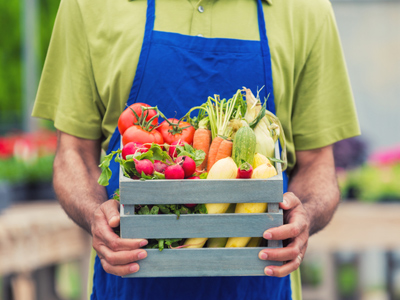
Organic Farming and Diversification
The study of land use and rural change forms a significant part of any geography syllabus and often involves making comparisons between the world's poorest countries and the world's richest. This GCSE quiz is about land use in the UK, specifically how farming, a primary sector industry, has changed in recent years.
Farming in the UK is sedentary, that is to say, farmers do not move from place to place. In general, in the upland areas of the UK, farming is pastoral with farmers raising cattle or sheep. These farms tend to be the smaller farms, whereas in the lowlands, farming is mixed and quite often the farms are larger. Farming in Britain these days is not as profitable for everybody as it was in the past - small farms in particular suffer the most. The reasons for this are that supermarkets buy in bulk and if farmers don't agree to accept lower prices, the supermarkets will buy from someone else.
Ready for more?
not all...
quizzers. Try to win a coveted spot on our Hall of Fame Page.







